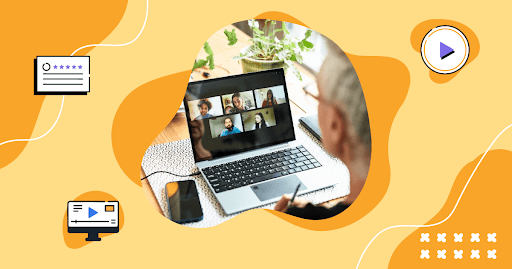Technology has transformed the way people work and learn in the modern world. Professional development has become crucial for those pursuing making money online through various digital ventures. Creating impactful learning materials requires understanding the unique needs of freelancers while ensuring the content remains engaging and practical.
Freelancers face distinct challenges in their professional journey. They require flexible learning options that accommodate their varying schedules and workloads. The resources must address real-world scenarios and provide actionable insights that can be implemented immediately in their work.
Key elements of effective learning materials
- Interactive content that encourages active participation
- Step-by-step guides for complex processes
- Real-world examples and case studies
- Practical exercises and assignments
- Self-assessment tools for skill evaluation
Structuring content for maximum impact
Breaking down complex topics into digestible segments helps freelancers grasp concepts more effectively. The content should follow a logical progression, building upon previously learned concepts while incorporating freelancing principles and best practices.
Technology integration for enhanced learning
Modern learning resources benefit from multimedia elements and interactive components. Digital tools enable freelancers to engage with content through various formats, making the learning experience more dynamic and engaging. Technology integration can improve knowledge retention and application significantly, according to a coursiv review.
Creating actionable learning paths
Developing clear learning objectives and milestones helps freelancers track their progress. The focus should be on tailoring learning resources that align with specific career goals and skill requirements. This structured approach ensures steady progress while maintaining motivation.
Assessment and feedback mechanisms
Regular feedback loops are essential for effective learning. Through coursiv review and implementation, many successful learning platforms have shown that incorporating various assessment methods helps freelancers gauge their understanding and identify areas for improvement.
Supporting diverse learning styles
Different freelancers have varying learning preferences. Some excel with visual content, while others prefer hands-on exercises. Creating resources that cater to multiple learning styles ensures broader accessibility and better learning outcomes.
Practical application emphasis
The resources should focus on real-world applications rather than theoretical knowledge alone. This approach helps freelancers immediately implement what they learn, making the content more valuable for making money online through their services.
Community and collaboration features
Including elements that foster community interaction can enhance the learning experience. Discussion forums, peer review systems, and collaborative projects help freelancers learn from each other while building professional networks.
Continuous content updates
The freelancing landscape evolves rapidly, necessitating regular content updates. Learning resources should reflect current industry trends, tools, and best practices while maintaining core fundamental principles.
Success tracking and motivation
Incorporating progress-tracking features helps freelancers stay motivated. Clear metrics and achievement markers provide tangible evidence of growth and mastery of new skills.
Technical skill development
Resources should cover both basic and advanced technical skills relevant to freelancing. This includes software proficiency, digital tool usage, and platform-specific knowledge.
Business acumen enhancement
Learning materials should address the business aspects of freelancing. This includes client management, pricing strategies, and professional communication skills.
Quality assurance measures
- Regular content review and updates
- Expert validation of material accuracy
- User feedback incorporation
- Performance metric tracking
- Accessibility standards compliance
Resource accessibility
Ensuring learning materials are available across different devices and platforms maximize accessibility. This flexibility supports the mobile nature of freelancing work.
Creating effective learning resources for freelancers requires a comprehensive understanding of their needs and challenges. By focusing on practical application, incorporating modern technology, and maintaining flexibility, these resources can significantly impact professional development and success in making money online through freelancing endeavours.

